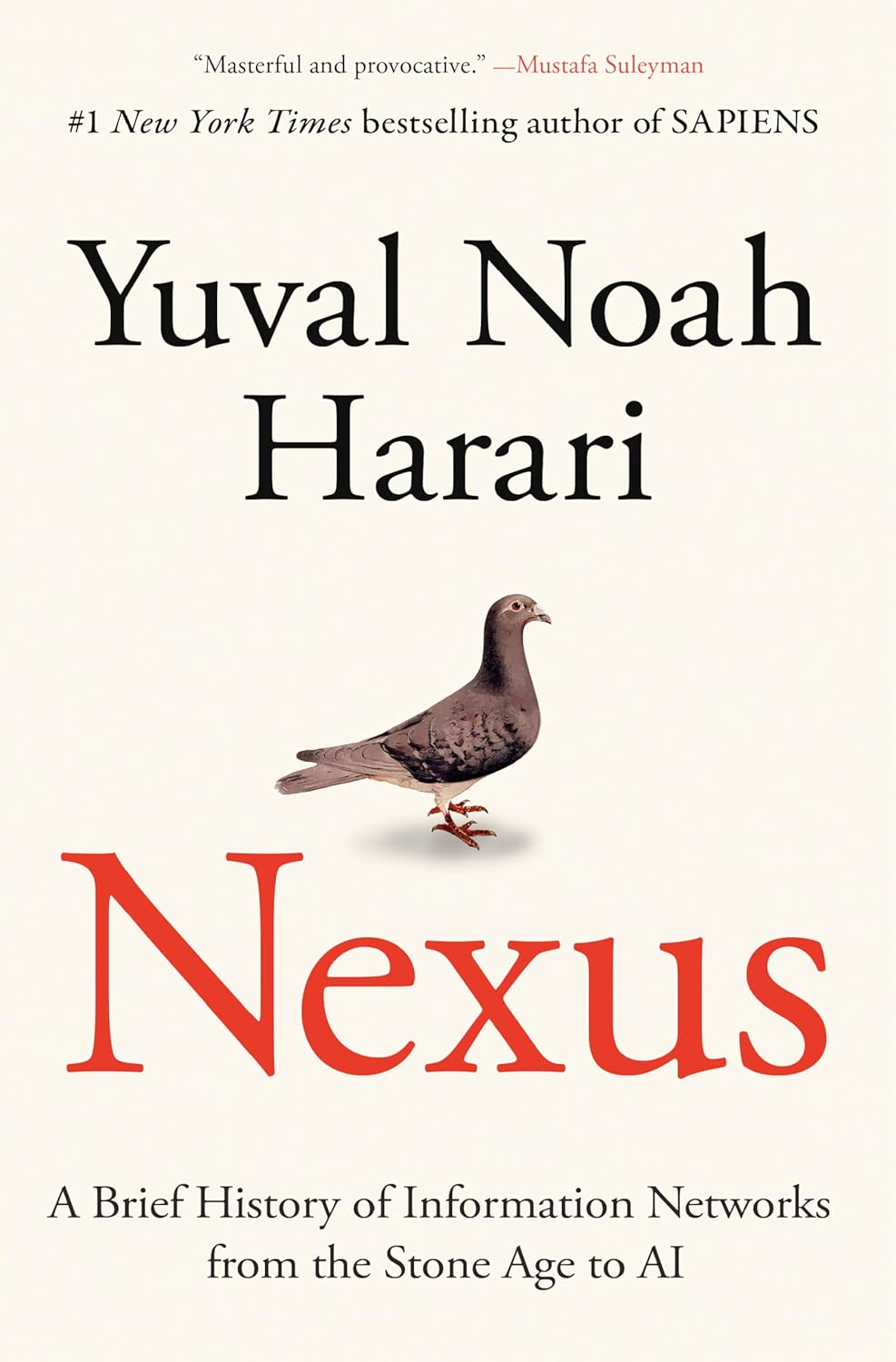Exploring Power, Truth, and the Future: A Review of Yuval Noah Harari's Nexus
I just finished Yuval Noah Harari’s latest book, Nexus. I've read all of his previous books, and he's one of the few authors I follow closely. From Sapiens to Homo Deus and 21 Lessons for the 21st Century, I’ve always enjoyed his writing style. In Nexus, I learned a lot of new ideas throughout his exploration of information. He presents a compelling perspective, pointing out that just because we have more information doesn’t mean we have more truth; information does not necessarily lead to truth but instead to power, reflecting a populist view of information.
Like his previous works, this book is filled with historical references across numerous topics. Harari analyzes and projects these themes into the future, making reasonable assumptions about how they might unfold. It's refreshing to revisit historical references, as they reinforce certain ideas, while some insights are entirely new. For instance, he discusses the canonization of the Bible, a process that fascinated me, and dives into ancient topics like witchcraft, adding another layer of intrigue.
Additionally, Harari examines how information and AI are employed by democratic societies and authoritarian regimes. After reading, I felt convinced that it would be significantly more challenging to live under a totalitarian or dictatorial regime in the future, as they could control nearly every aspect of life. We are fortunate to live in a free society where, although some things are monitored, we still have the choice to limit technology’s impact and, to some extent, curb its influence.
Harari also touches on intersubjective realities—the stories and myths we’ve created, documented, and organized over time. This led to the need for bureaucratic systems to manage, document, and interpret vast amounts of information. Just as in his earlier books, he spends considerable time discussing religion, contrasting it with scientific institutions. Science has a self-correcting mechanism, allowing it to evolve, while religion tends to have rigid rules that do not change over time. This self-correcting ability is crucial, whether in institutions, ideologies, or societies; without it, progress is hindered, and systems become stagnant.
He explores the delicate balance between truth and order, noting that authoritarian regimes often prioritize order, while democratic institutions lean towards truth. Independent agencies can uncover truths that governments might hide, enabling a different approach to balance. He also delves into surveillance, highlighting the social credit system in China and the role of algorithms in tech companies worldwide. Although both are concerning, one key difference is that we can choose not to engage with certain technologies, whereas if the state enforces them, options are limited.
Nexus offers countless insights and is a great read. I highly recommend it and would consider it the best book I’ve read this year, 2024. I encourage everyone to delve into it.

